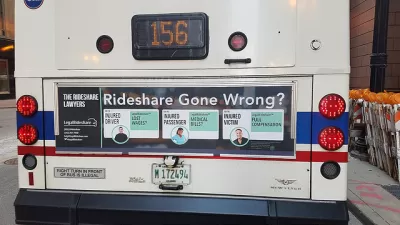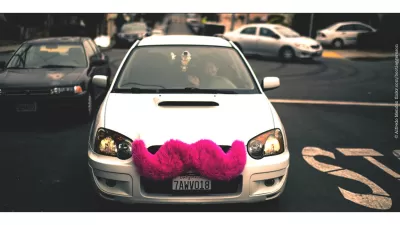The Brookings Institute thinks it has found a way to measure the impact of the expanding 'gig economy'—i.e., freelancing work enabled by online platforms like Airbnb and Uber.
Ian Hathaway and Mark Muro author a post examining the proliferation of the so-called gig economy in cities around the country. Despite so much attention paid to apps like Airbnb, Uber, and more, writes Hathaway and Muro, "it’s still hard to get a handle on the size and importance of either those particular platforms or the larger 'gig economy.'"
"However, it turns out that for all of the limitations of the available data, additional light can in fact be thrown on the online gig economy," according to the article. To do so, Hathaway and Muro called on "an obscure Census Bureau dataset on 'nonemployer firms,' which tracks the activity of 'businesses' that earn at least $1,000 per year in gross revenues (or $1 in construction) but employ no workers."
The findings of their analysis reveal a significant and fast growing gig economy, specifically in peer-to-peer ride-sharing and peer-to-peer room-sharing. Another finding of their analysis: "platform-based freelancing is not yet substantially displacing payroll employment," though the authors admit that could change. Finally, their analysis finds that online gigging is mostly concentrated in urban areas.
The article includes a lot more detail and some very nifty infographics to help illustrate its points.
FULL STORY: Tracking the gig economy: New numbers

Planetizen Federal Action Tracker
A weekly monitor of how Trump’s orders and actions are impacting planners and planning in America.

Chicago’s Ghost Rails
Just beneath the surface of the modern city lie the remnants of its expansive early 20th-century streetcar system.

San Antonio and Austin are Fusing Into one Massive Megaregion
The region spanning the two central Texas cities is growing fast, posing challenges for local infrastructure and water supplies.

Since Zion's Shuttles Went Electric “The Smog is Gone”
Visitors to Zion National Park can enjoy the canyon via the nation’s first fully electric park shuttle system.

Trump Distributing DOT Safety Funds at 1/10 Rate of Biden
Funds for Safe Streets and other transportation safety and equity programs are being held up by administrative reviews and conflicts with the Trump administration’s priorities.

German Cities Subsidize Taxis for Women Amid Wave of Violence
Free or low-cost taxi rides can help women navigate cities more safely, but critics say the programs don't address the root causes of violence against women.
Urban Design for Planners 1: Software Tools
This six-course series explores essential urban design concepts using open source software and equips planners with the tools they need to participate fully in the urban design process.
Planning for Universal Design
Learn the tools for implementing Universal Design in planning regulations.
planning NEXT
Appalachian Highlands Housing Partners
Mpact (founded as Rail~Volution)
City of Camden Redevelopment Agency
City of Astoria
City of Portland
City of Laramie





























